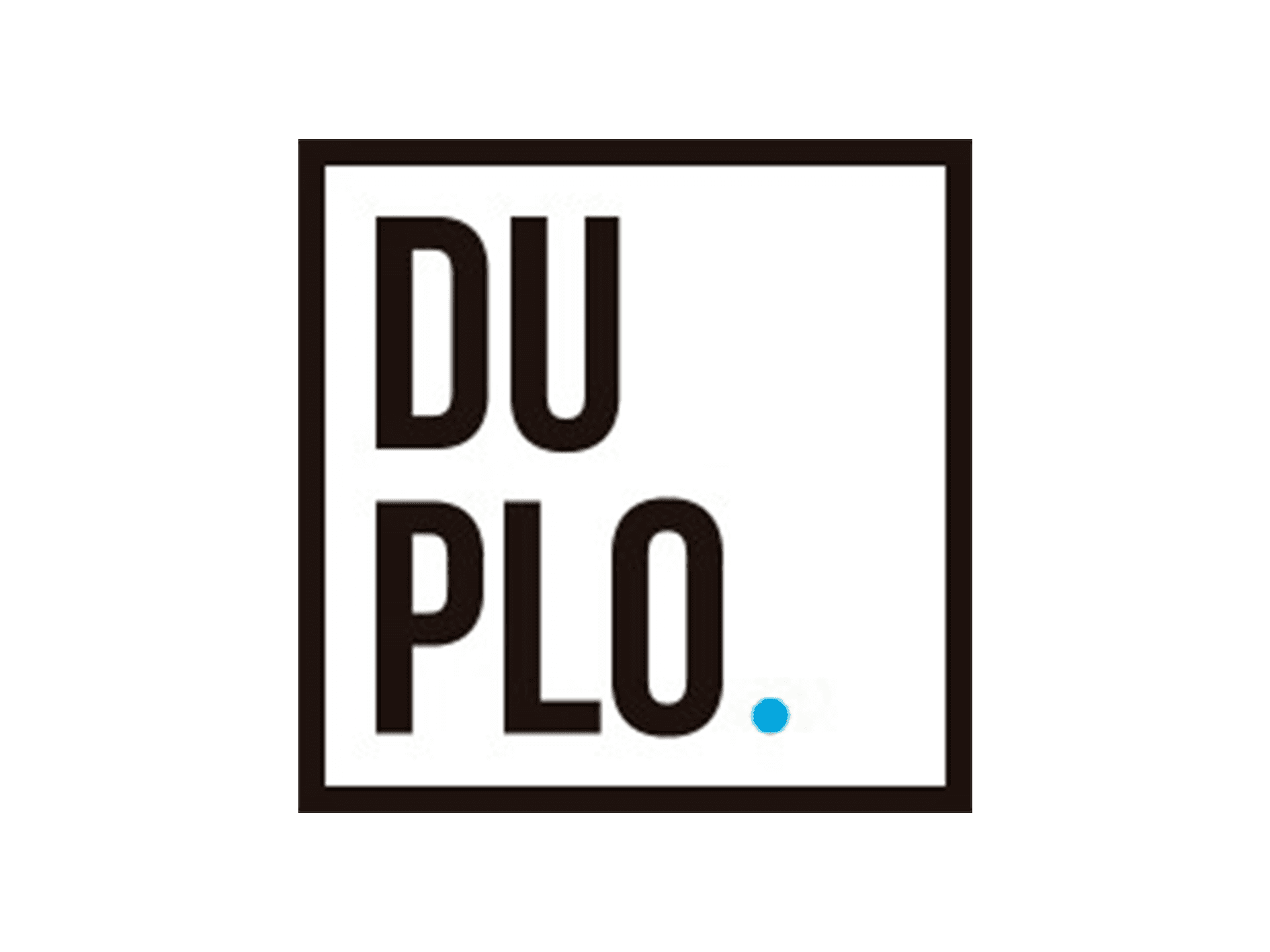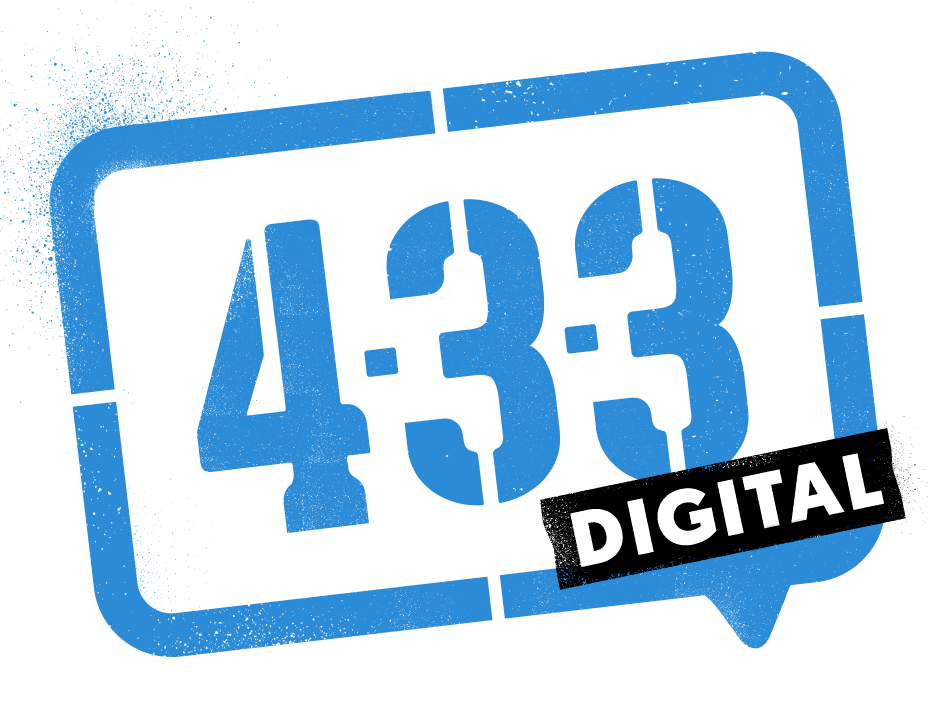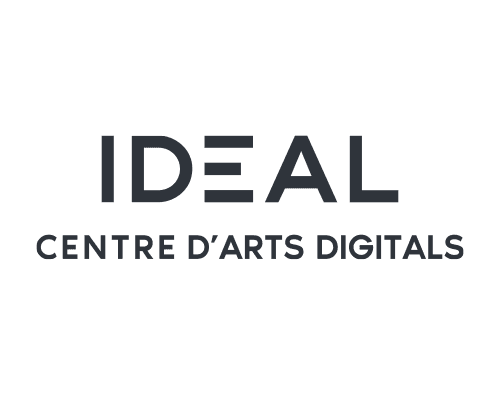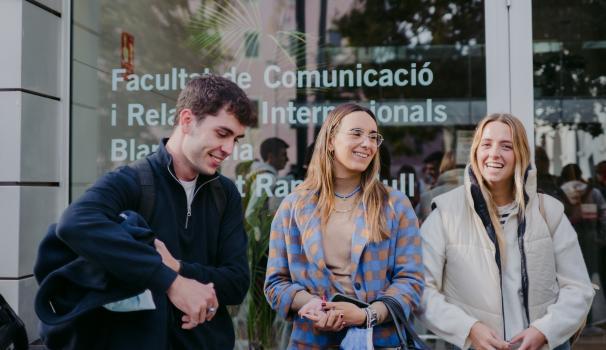- Home/
- Bachelor Degree in Digital Media
Bachelor Degree in Digital Media
Academic year closed
- Share:

- ModalityIn-person
- LanguagesCatalan, Spanish
- Duration4 academic years
- Credits240
- DateSeptember 2026
- ShiftsMorning / Afternoon
- Planning
8 a.m. to 2 p.m. / 3 p.m. to 9 p.m.
- Places40
- Location
Blanquerna-URL - Plaça Joan Coromines. 08001 Barcelona
- Faculty
School of Communication and International Relations
Who is it for?
We want to help you transform your talent in social networks and digital media into a successful career. This degree focuses on the study of digital tools and their relationship with communication.
The Bachelor Degree in Digital Media (Digital Media) prepares you to be the profile that companies need: one/a professional who has all the essential skills in social media, as well as: digital content production, web design, online advertising, data analysis, and related topics.
If you want to study the content of the Advertising, Journalism and Audiovisual degrees and want to grow your digital skills to turn them into the main professional tools, you have to know that this degree is designed for people like you!
Great scope for professional growth
The Bachelor Degree in Digital Media (Digital Media) offers specific academic content in the areas of digital marketing, analytics and post-production, big date, storytelling and streaming.
This reinforces the digital profile in a multimedia and cross-platform vision, incorporating new professional skills, with the creation and dissemination of content adaptable to all channels and platforms.
Digital analytics and metrics
Editing and post-production
Big data
Storytelling
Streaming
If you choose the bachelor's degree in Digital Media at Blanquerna, you choose...
A guaranteed future career
- Real experience in digital communication projects.
- Specialization in the professional profiles of digital communication.
- Interdisciplinary and multi-platform training in content creation and management.
- Small group seminars with individualized tutoring.
- Master classes with humanistic and interdisciplinary knowledge.
- Expansive network of businesses and internships.
- International dimension in continuous expansion.
- Innovative facilities and state-of-the-art equipment.
- Humanistic, rigorous and high-quality training (three semesters in common with the Communications degrees).
Key data
employment rate (School overall, AQU data)
agreements with companies
international university agreements
teaching staff
A unique methodology based on personalized learning
The Blanquerna methodology is based on seminars, a core element in achieving personalized and qualitative learning and holistic training that includes not only academic and professional competencies but also personal and human skills.
Master classes
With a focus on subjects with a theoretical component, master classes are taught by professionals and experts in a particular field, who offer guidance and support to their tutees in their particular disciplines, and build an ongoing academic and personal development relationship.
Seminars
Seminar tutors work 6 hours a week with a maximum of 12 students. This establishes a relationship of trust between tutor and tutee and allows the monitoring of each tutees' progress. These sessions also help students to see the connections between what they are studying and their future professional careers.
Internships
We have agreements with leading multinational companies in the country, as well as private companies, and internal and external communication, business, marketing and public relations departments. The School has an agreement with more than 1,200 companies.
Studies abroad
Studying abroad is a life-changing experience. We offer you the opportunity to take part in various exchange programs and internships abroad, as well as to participate in a variety of international cooperation programs.

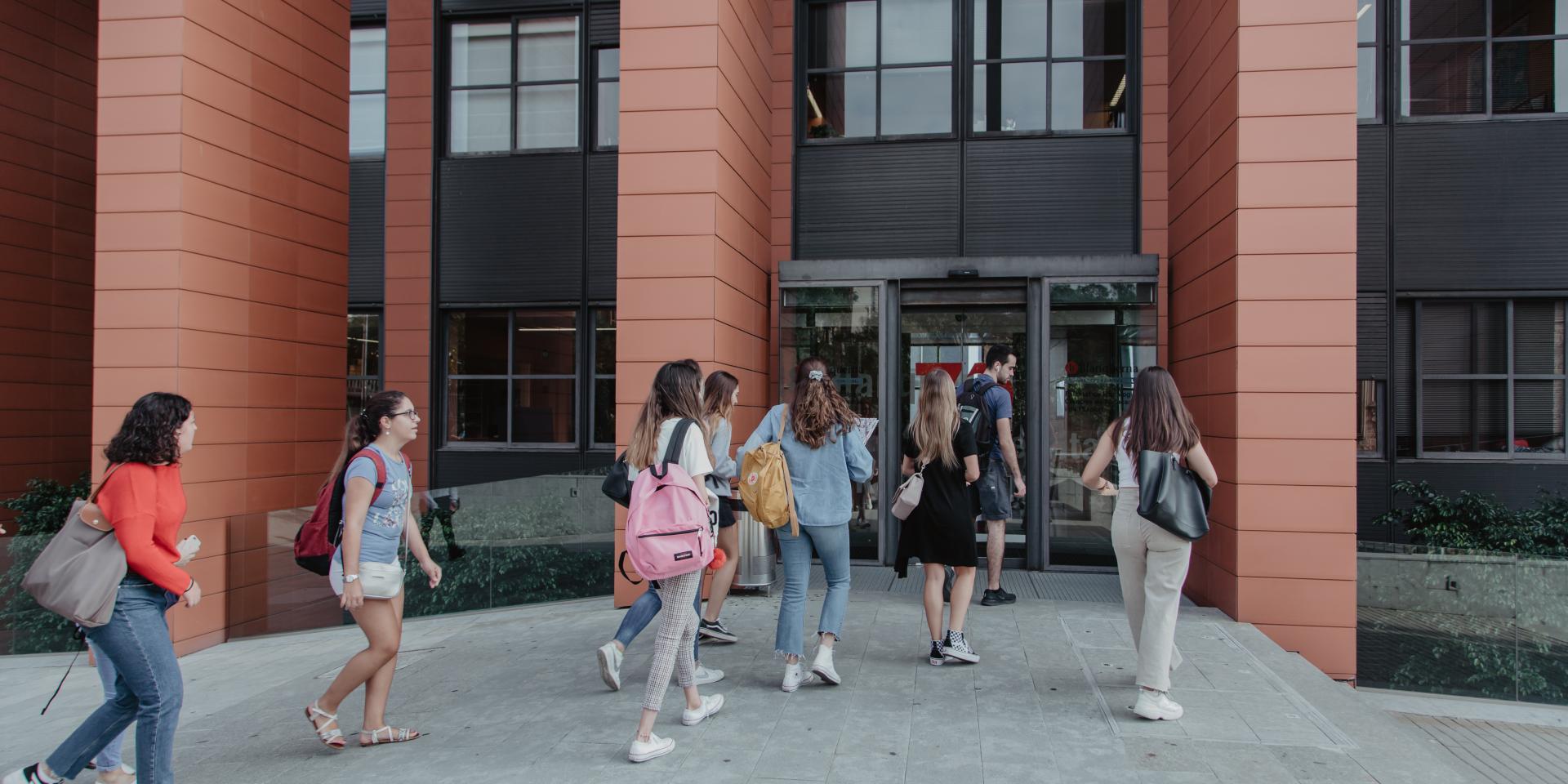
Study for a double major
Study for two majors simultaneously, consecutively or following a track tailored to you
News
November 30, 2022
The demand for professionals in the digital sector continues to grow

June 28, 2022
4 Blanquerna-URL master's degrees ranked among the best in Spain, according to the ranking by El Mundo
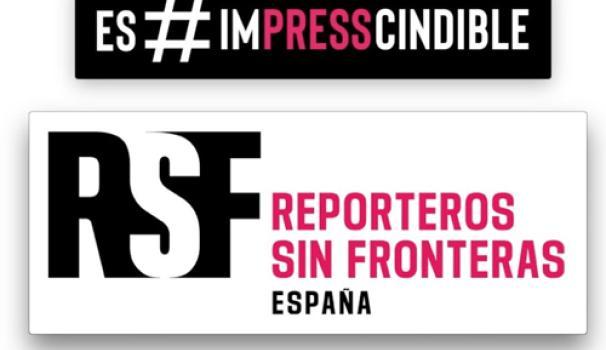
June 29, 2021
Reporters Without Borders and Blanquerna sign an educational cooperation agreement

June 29, 2021
Two Official Master's degrees in the "top five", according to the El Mundo ranking
Academic information
Curriculum
The curriculum of the degree in Digital Media is made up of core, compulsory and elective subjects, internships and a final thesis during 8 semesters (4 years), from September to May. Within this plan, you will be able to choose the various electives courses according to the professional profile you want to specialize in.
Credits
| First | Second | Third | Fourth | Total | |||
| Final degree project | 12 | 12 | |||||
| Core curriculum | 41 | 21 | 62 | ||||
| Internships | 12 | 12 | |||||
| Compulsory | 19 | 39 | 45 | 39 | 142 | ||
| Optional | 3 | 9 | 12 | ||||
| Total | 60 | 60 | 60 | 60 | 240 |
| Subject | Credits | Academic type | |
| First semester | |||
| English 1 | 3 | Core curriculum | |
| Theory of Communication and Information | 6 | Core curriculum | |
| History of Contemporary Thought | 6 | Core curriculum | |
| Seminar I. Introduction to Communication | 8 | Core curriculum | |
| General Sociology | 3 | Core curriculum | |
| Language I. Catalan Language | 3 | Core curriculum | |
| Language II. Spanish Language | 3 | Core curriculum | |
| Second semester | |||
| English 2 | 3 | Core curriculum | |
| Information Management | 4 | Compulsory | |
| Aesthetics | 4 | Compulsory | |
| Seminar 2. Narration | 8 | Compulsory | |
| Sociology of Communication | 3 | Core curriculum | |
| Language III. Text Types | 3 | Core curriculum | |
| Language and Techniques in Image and Sound | 3 | Compulsory | |
| Subject | Credits | Academic type | |
| Third semester | |||
| English 3 | 3 | Core curriculum | |
| Contemporary Political and Social History | 3 | Compulsory | |
| Introduction to Audiovisual Communication | 6 | Core curriculum | |
| Introduction to Journalism and Corporate Communication | 6 | Core curriculum | |
| Introduction to Advertising, PR and Marketing | 6 | Core curriculum | |
| Seminar III: Career Guidance | 8 | Compulsory | |
| Fourth semester | |||
| English 4 | 3 | Compulsory | |
| Basic Principles in Design | 4 | Compulsory | |
| Introduction to Economy | 4 | Compulsory | |
| Fundamentals in Marketing | 3 | Compulsory | |
| Analytics and Digital Metrics | 3 | Compulsory | |
| Digitals Patforms | 3 | Compulsory | |
| Seminar IV: Integral Communication Management | 8 | Compulsory | |
| Subject | Credits | Academic type | |
| Fifth semester | |||
| Communication Law | 4 | Compulsory | |
| Fundamentals of Script Writing | 3 | Compulsory | |
| Mathematics applied to Scocial Sciences | 3 | Compulsory | |
| Corporate Channel Management | 3 | Compulsory | |
| Seminar V: Skills and skills for Production I | 8 | Compulsory | |
| Communication Ethics | 6 | Compulsory | |
| Elective courses I. Select one subject | 3 | Optional | |
| Psychology of Communication | |||
| International Trade and Finances | |||
| International Relations | |||
| Sixth semester | |||
| Project Development | 4 | Compulsory | |
| Digital editing and Post-Production Techniques | 3 | Compulsory | |
| Content Architecture | 3 | Compulsory | |
| Seminar VI. Skills and Sills for Production II | 8 | Compulsory | |
| External Internship | 12 | Practicum | |
We make it easy, so you can choose whatever you want to study
Course fees are paid in installments without any interest. At the time of enrollment, 50% of the total cost of the credits for which the student is enrolled must be paid*; the remaining 50% is split into nine monthly installments (from October to June) payable by direct debit.
The tuition fee / credit of degrees is regularized each academic year for all courses.
Tuition fee for the 2026–27 academic year
Discounts for bachelor's degrees from Blanquerna-Ramon Llull University
Fundació Blanquerna discounts (not cumulative with each other):
- Student member of a large or single-parent family: 5% discount.
- Student with disability >33%: 5% discount.
- Blanquerna family (student, child, sibling or partner, student): 5% discount. Anyone who has completed an official degree will be considered an Alumni.
In order to apply the discount, you must prove it with the corresponding document. Students must bring the original document in person to the Academic Secretariat, together with their identification document, for validation and application of the corresponding discount.
The deadline for submitting the supporting documentation for the 2026-2027 academic year is September 30, 2026.
Thanks to the cross-cutting nature of their studies and the ability to develop in hybrid environments, theur professional career has ranged from advertising, journalism and audiovisual communication to information, corporate communication and entertainment. The degree in Digital Media allows for employment in a wide variety of fields.

Digital content manager
Responsible for managing and disseminating digital content on multi-platform channels.

Digital data manager
Responsible for managing data collection, analysis and visualization in understandable formats of content aimed at the public.

Digital manager
Responsible for the mission of accompanying companies undergoing a transformation into digital environments.

Responsible for digital strategy
Experts in digital marketing, digital brand content and digital copywriting.

Expert in SEM and SEO
People in charge of web traffic on ad servers.

Online Reputation Manager (ORM)
Person responsible for acquisition, loyalty and CRM and analyst of digital assets and audiences.
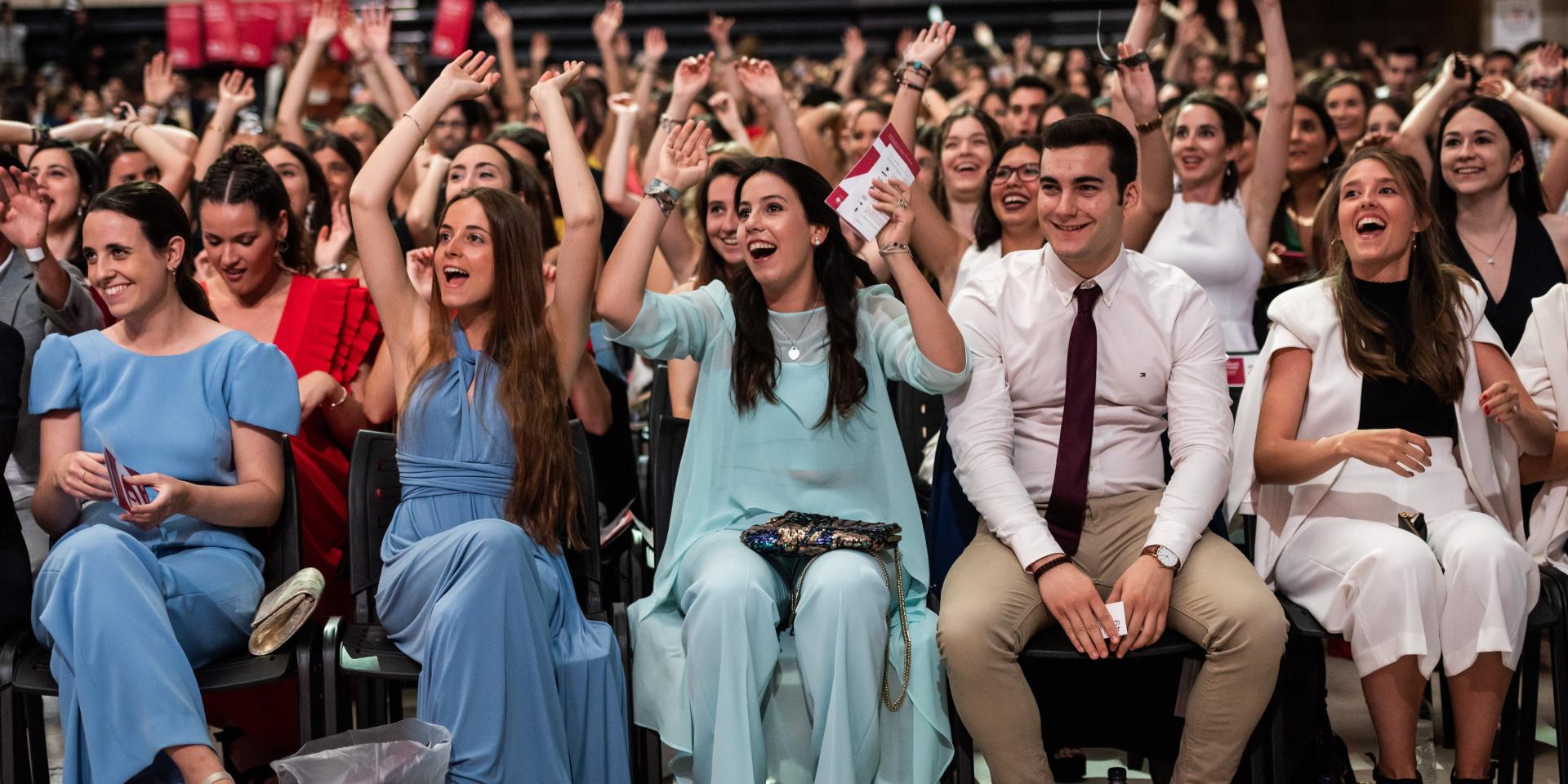
A direct link to your future career
Our work doesn't finish the moment you graduate. The Alumni department will support you to enable us to achieve an employment rate of 90% of students in the first year after graduation
State-of-the-art equipment at the student's disposal
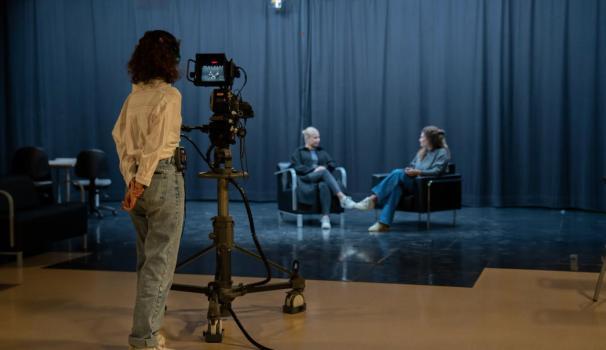
Television studios
In front of or behind the camera? You can work on any of these skills in the school's two television studios. In addition to the cameras, you can learn how the production room, the lighting and the teleprompter work.
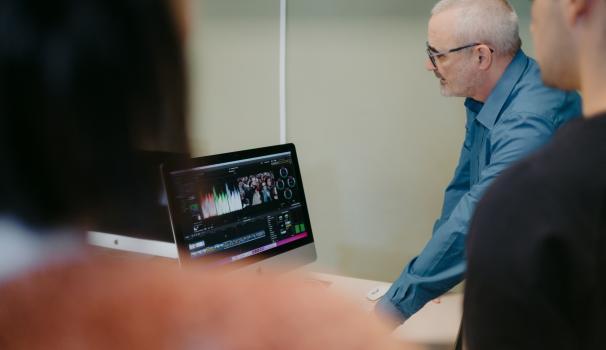
Video post-production rooms
Available for both academic work and personal projects, you will find a total of 9 audio and video post-production rooms at the school, equipped with pioneering programs such as Photoshop, DaVinci Resolve, Final Cut Pro, Premiere Pro, After Effects and Audition.
Multimedia laboratory
For any communication project, the multimedia laboratory is the perfect room to start making a creative idea or initiative a reality. The room allows reservations for team meetings.
Professional cameras
Going into the world of work having been able to use professional equipment is essential. That's why we provide you with cameras that are used in the Audiovisual Communication and Journalism sectors so that you can learn with professional teams.

Camera accessories
You have a wide range of accessories for professional cameras to get the best results in filming. Remember that you can use it for both personal and academic projects, always making the relevant reservation in advance.
Audio equipment
Both image and sound are essential to create a good audiovisual piece. You will find all kinds of equipment for sound recording. The microphones work with XLR connections and cannot be connected to non-professional equipment.
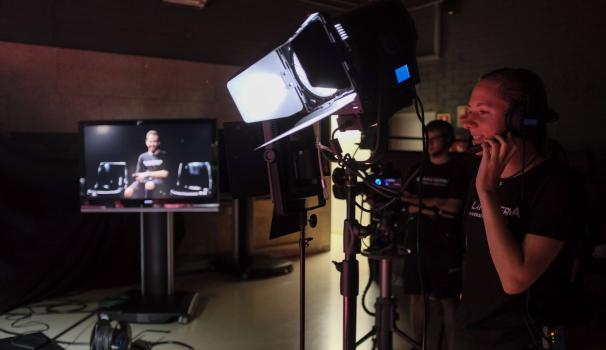
Lighting equipment
The lighting in the shootings varies in many cases and needs to be adjusted when recording an audiovisual piece. That's why, in addition to video and audio equipment, we offer a variety of lighting accessories.

Radio studios
Whether it's broadcasting live or recording a podcast, you'll find all the equipment you need to do radio. The school has two radio studios and three individual workspaces equipped with microphones and telephones for external interviews.
Technological resources
If you have a job or just need a computer, you can go to the computer classrooms or workspaces and use the Macs we have at your disposal.

Digital writing laboratory
Applying content creation techniques to the web is essential to internalizing knowledge. Journalism, advertising and corporate communication have evolved into the digital environment.
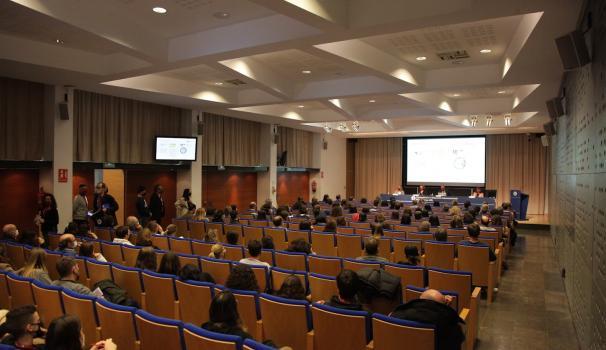
Auditors
The school has an auditorium that can be used for celebrations, academic events, conferences or activities. In addition to the school's events, the space hosts other occasions that require ample space.
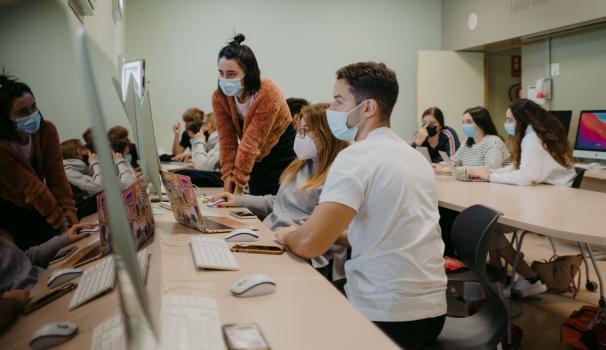
Art direction laboratory
Let your imagination run wild and enter a space of boundless creativity, where you can work to find the best strategy and creative proposal for an advertising project.
Libraries
If you need a quiet space to study or to do individual and group work, come to the library! Each school has its own library with computers, workrooms, reading points and an extensive catalog of documents you can consult in both hard copy and digital format.
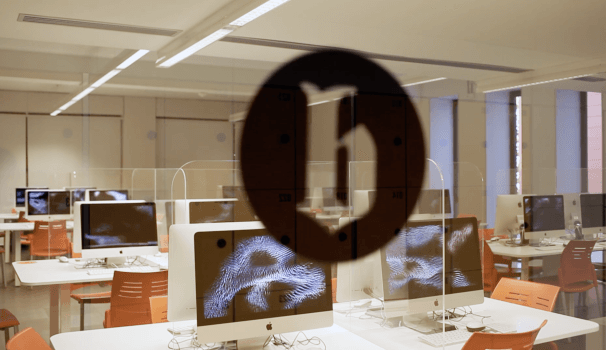
Computer rooms
If you have a job or just need a computer, you can go to the computer classrooms or workspaces and use the Macs we have at your disposal.
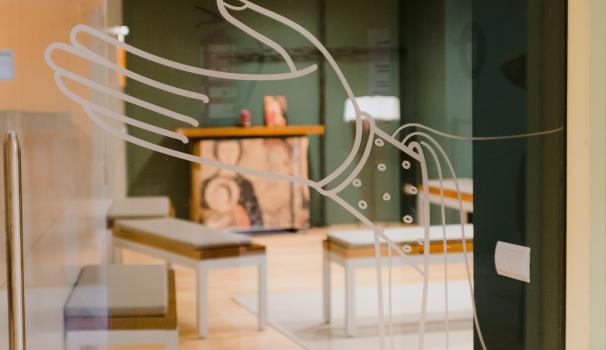
Chapel
The chapel is the right place to find recollection, peace, to focus, to pray and to celebrate the Eucharist weekly and at important liturgical moments (Christmas, Ash Wednesday and Easter). The sacrament of reconciliation is also celebrated.
All the services you need during your course

Audio-visuals
Using the latest equipment and audio-visual techniques is part of the learning process and enables students to enter the world of work with a broad knowledge of computer science. For this reason, the schools are equipped with audio-visual material for viewing and editing and a video library.

Programa de Mentoring
Ets estudiant o Alumni dels graus en Comunicació o del Grau en Relacions Internacionlals i tens un projecte que requereix equipament tecnològic i assessorament professional? Posem a la teva disposició el programa de mentoring, un servei per donar suport tecnològic i assessorament a aquests projectes.
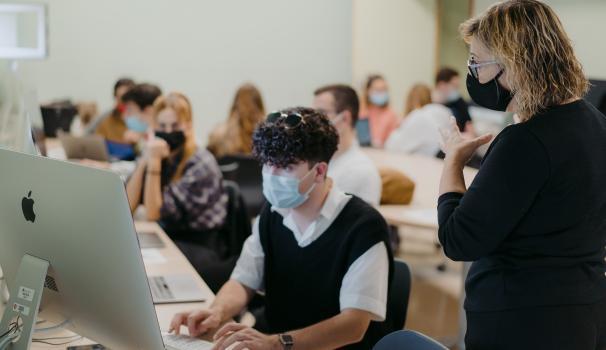
ICT services
Our facilities include Mac computers, state-of-the-art software, WiFi network and printers to provide students with all the materials they need in their learning process.

Research ethics committees
Ethics in the field of research is fundamental. The Faculty Research Institutes are supported by the opinions of the Research Ethics Committees (CER-URL) to evaluate and rate projects that have ethical implications.
Research Support Office
If you are part of a research group, a professor or a PhD student and you need help with a project, you can ask for advice. This assistance includes analysis, guidance, help with applying for awards, and the financial management of projects.
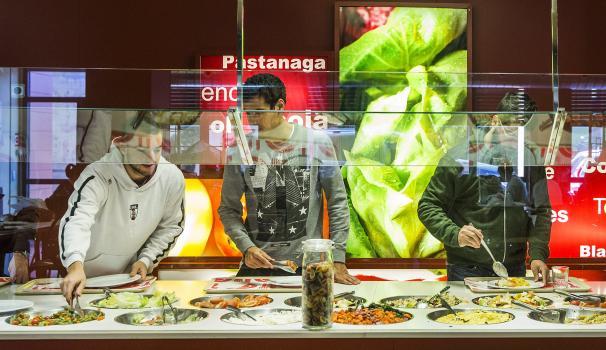
Bar / Restaurant
The nerve center of the quintessential faculties is the bar. There, teachers, students and staff meet throughout the day for breaks or meals.
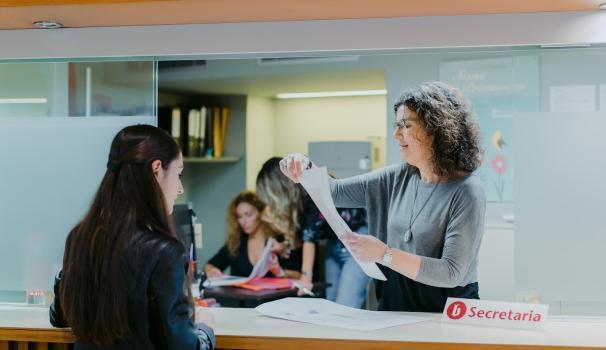
Academic Secretary
The Academic Secretaries of the Blanquerna faculties are the space for students to relate to the processes linked to the registration of official and own courses.

Student Information and Guidance Service (SIOE)
Would you like to receive information on pre-registration and admissions processes, scholarships and grants or validations? The SIOE is the service you need. Ask for all the information about any of these processes and discover all the possibilities at your fingertips.
Internship service
Professional experience is a core part of our methodology. For this reason, we have a broad spectrum of internship agreements to meet the needs and preferences of all students. You will graduate having worked in your industry.

Scholarships and grants service
At Blanquerna, we put the future within everyone's reach thanks to our scholarships and grant service to start or continue studying at our schools. Financial aid is both internal and external to the university. You will find a wide range of possibilities.

International Mobility Office
Going abroad is a unique opportunity to discover the plurality of the world. Aware of the importance of the internationalization of studies, we have established mobility agreements around the world.
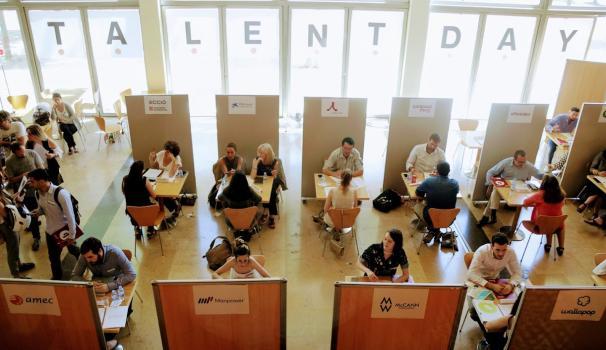
Careers
This service provides graduates with the necessary means so that they can actively participate in their professionalism and propose optimal candidates to organizations and companies looking for staff.

Job Bank
The leap into the world of work is always a challenge. For this reason, we provide a Job Bank for students and graduates. This service puts students in touch with companies and institutions looking for staff.
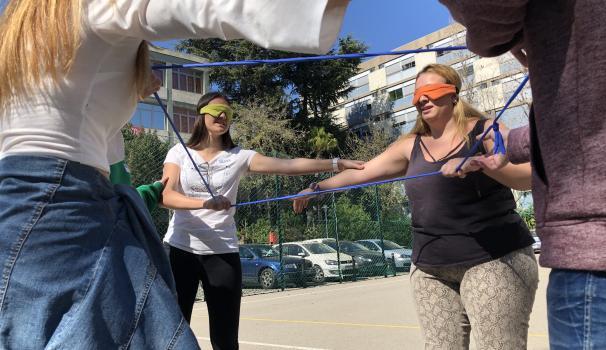
Solidarity action
Solidarity and the struggle for human dignity are values that identify us. Solidarity Action is a volunteer program that our students can join to participate in projects in the Third and Fourth World.

Alumni service
Studying in Blanquerna allows you to be part of our community. Being a college student opens the door to a lot of options for continuing your vocational training beyond your time in the classroom.

Sports service
Want to represent the URL in college sports tournaments? You can find a wide range of possibilities for both individual and team sports. To be a student of Blanquerna, you will have a discount at the Can Caralleu and La Salle Sport & Fitness sports complexes.

Personal Guidance Service (SOP)
If you are in a difficult situation in the academic, personal or social field, you can request, free of charge, the personalized attention of the SOP. This is an interdisciplinary team of professionals who will guide you in dealing with the situation.
Faith and Spirituality
In the three Blanquerna faculties, you will find spaces for reflection isolated from the hustle and bustle dedicated to the celebration of the Faith or cultural and religious animation. If you wish, you can also receive personalized attention and information about church life.
Diversity support
At Blanquerna we promote personal development at all levels to people with a diversity of specific needs from a normalizing context that encourages personal autonomy and uniqueness.
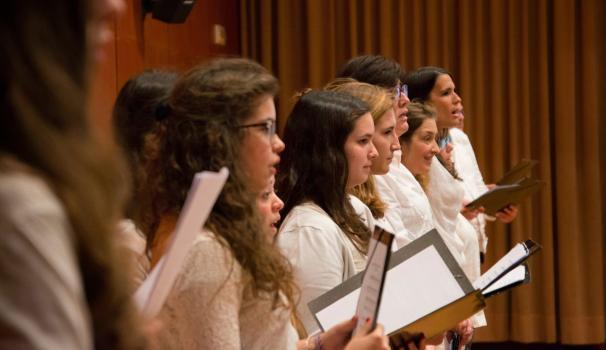
Blanquerna Choir
If you like music and want to take part in the concerts of institutional events and festivities, sign up for the Blanquerna Choir. There you will meet new friends and enjoy music.
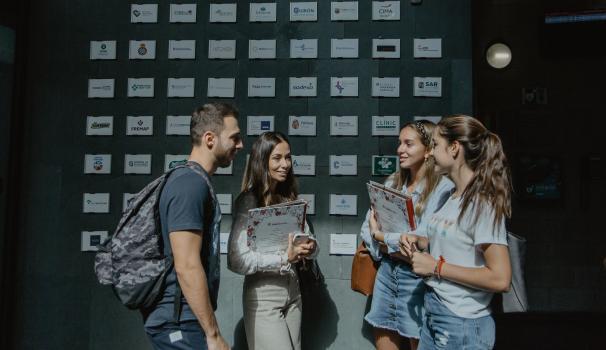
Student representatives
Each class group must elect a representative to put forward concerns or make proposals to the faculty members and academic management. At the same time, each degree must appoint a delegate and each school a representative on the general URL council.
Student Council
Contact between students and the university is constant and is channeled through the Student Council, the body that collects proposals and requests from students and facilitates university life.

Language support service
Are you studying a foreign language and want to improve your level? Do it at your own pace in the language self-learning classroom. This service offers various teaching resources and materials to practice the language.
Faculty
Javier Albarracin Corredor
Lluís Anyó Sayol
Montserrat Arbós Figueras
Sonia Ballano Macías
Hugo Jordi Ballón Marco-Bach
Pilar Baradat Marí
Serena Rachel Barkham
Jaume Benet Busquets
Joan Bosch Garcia
Jordi Botey López
Josep Maria Brugues del Moral
Jordi Busquet Duran
Juan Pablo Capilla Garcia
Joan Joaquim Carreras Goicoechea
Xavier Casals Meseguer
Jordi Collell López
Juan Cuenca Fontbona
Sergi Cutillas Marquez
Andrea Daza Tapia
Fernando de Felipe Allué
Rafael De Ribot Torrella
Núria Escalona Nicolas
Daniel Esparza Olivero
Miguel Franquet Dos Santos Silva
Iván Gómez García
Diane Hoyle
Juan Ramón La Parra Martínez
Marta Marín Anglada
Alfonso Medina Cambrón
Mònica Mestanza Garcia
Josep Lluís Micó Sanz
Gemma Morató Sendra
Pilar Navarro Muñoz
Lluís Pastor Pérez
Karma Peiró Rubio
Susana Pérez Soler
Jaume Peris Llimona
Josep Maria Picola Meix
Patricia Plaja Pérez
Alba Ramírez Pagès
Carles Riera Fonts
Marc Rosado Salvador
Joan Sabaté Salazar
Sílvia Sáez Sánchez
Josep Sala Colom
Armando Salvador Perez
Jordi Sànchez Torrents
Eva Santana López
David Serrano Blanquer
David Tetilla Llaó
Joan Tharrats Pascual
Francesc Jesús Viadel Girbés
Eduard Vidal Portés
Elisa Vivas Soto
Elena Yeste Piquer
Klaus Zilles
Application for admission
The application process for a place in the 2026-2027 academic year begins on October 29, 2025, and consists of three phases:
- Application for admission
- Admission
- Enrollment
1. Application for admission
The application for a place can be made online or in person and entitles the applicant to participate in the admission process.
It can be done via the Application for admission button on the page for each degree, or directly from here, and requires:
- Registering in the single registration system and creating a user account (if not done previously).
- Making a payment of €50 (non-refundable) for admission rights and procedures. This can be done with a credit or debit card through a secure and confidential process with BBVA bank.
- Uploading the documentation to the document repository before the deadline for the place application process.
- Identification document (DNI, NIE, Passport)
- Certification of university entrance qualifications (PAU (University Entrance Exams), CFGS (Higher-Level Vocational Training), International Baccalaureate Diploma, etc.) if available at the time of applying for a place.
It can be done at the School itself, by going to the Student Information and Guidance Service (SIOE), and the following must be submitted:
- Photocopy of the identification document (DNI, NIE, Passport)
- Photocopy of the certification of university entrance qualifications (PAU (University Entrance Exams), CFGS, International Baccalaureate Diploma, etc.) if available at the time of applying for a place.
- Payment of €50 (non-refundable) for admission rights and procedures. This can be made in cash or with a credit or debit card.
2. Admission
Approximately within two working days after the place application, the student will be informed by email about their admission. If admitted, the same message will invite them to formalize enrollment, including instructions on when and how to complete the procedure.
The criterion used to call admitted students to formalize enrollment will be the order of payment of the place application. For degrees with more than one shift, note that a shift may fill up during the enrollment period. The place will be definitive once the student has submitted the documentation with the final university entrance information and the first enrollment payment has been made.
For degrees taught in English, students must demonstrate a minimum B2 level of English to be admitted. The level can be accredited through the level test that all degree students must take before starting their program. To prove the minimum level, an official language certificate of B2 or higher can also be submitted: IELTS (6-7), TOEFL (IBT 90-110), CAMBRIDGE, or Official Language Schools, obtained within the last two years. Certificates from other organizations will not be accepted. The certificate does not exempt students from taking the level test to determine the English level for the first year.
It is the student's responsibility to have a level equivalent to B2 in the language of instruction of the degree to properly follow classes
3. Enrollment
The student called to enroll may choose between two options, depending on whether they already have the definitive entrance pathway or not.
- Conditional Enrollment
Enrollment in the degree can be formalized before passing the PAU (University Entrance Exams) or CFGS or having the entrance pathway. Enrollment will be conditional on the presentation of the corresponding admission pathway. This option secures the place and allows choosing the shift, in the case of degrees with more than one shift, while places are available.
If the student does not obtain the entrance pathway, the enrollment fee will be refunded, but they will lose the place, preference in shift selection, and the amount paid for the place application (€50). If places remain available in July, they may choose to stay on the waiting list until September, and the money will be held, but they will no longer have preference for shift selection. If they do not obtain the entrance pathway by September, the enrollment fee paid will be refunded.
- Final enrollment
It will be formalized if, at the time of processing the enrollment, the student already has the university entrance pathway. They may opt for the available places and shifts.
IMPORTANT: Degrees with more than one shift may exhaust places in a specific schedule with conditional enrollment. The required documentation must be uploaded via the Document Repository.
The place will be definitive once the student has submitted the documentation with the final university entrance information and the first enrollment payment has been made.
NOTE: Students in the Communication Degrees must take an English level test that will not be exclusionary for admission but will determine the level at which they start the first year. Each student will be informed of the test date and time by email.
Studies can be paid upfront and/or in interest-free installments. If payment by installment is selected, upon enrollment the student will have two business days to pay 50% of the total cost of the enrolled credits, using their chosen form of payment; this payment will not be taken by direct debit. The remaining 50% will be divided into nine monthly payments from October to June via bank direct debit from the account provided at the time of enrollment. Prices for each academic year are updated annually.
Once payment is made, the corresponding receipt of enrollment can be viewed in the student's Document Repository and via the student's portal.
INTERNATIONAL OR FOREIGN STUDENTS
For the foreign student admission process, the following considerations and requirements must be taken into account in accordance with the prevailing regulations.
Students must apply to the Universidad Nacional de Educación a Distancia (UNED) to obtain the credential certifying that they meet the requirements to access university studies within the state education system (UNED Credential). Therefore, they do not need to take the PAU (University Entrance Exams), but without the mentioned credential, they cannot enroll in our degrees.
The education systems that can be accessed through this pathway are: Germany, Andorra, Austria, European Schools (European baccalaureate), International Baccalaureate, Belgium, Bulgaria, Croatia, Denmark, Slovakia, Slovenia, Estonia, Finland, France, Greece, Hungary, Ireland, Iceland, Italy, Latvia, Liechtenstein, Lithuania, Luxembourg, Malta, Norway, the Netherlands, Poland, Portugal, the United Kingdom, the Czech Republic, Romania, Sweden, Switzerland, China and Cyprus.
These students may access our degrees by submitting the homologation of the High School diploma from the Spanish Ministry of Education or from the autonomous communities with transferred competence, such as the Generalitat de Catalunya. Proof of application for convalidation will be sufficient for students to enroll and begin taking a bachelor's degree course, however full enrollment is conditional on convalidation being confirmed. Bear in mind that convalidating studies can take more than three months to complete, so this process should be done in parallel with the admissions process to our bachelor's degrees. If the convalidation resolution is not obtained in the terms requested by the interested party, the results of any exams taken, or the enrollment made as a result thereof, are rendered null and void.
Contact
For any questions or inquiries about the place application or enrollment process, contact [email protected]
The bachelor's degree thesis, the step prior to the labor market
The final thesis, which the student completes during the last year, consists of the production of a digital communication project with the same standards of professional projects in the sector. It is an opportunity to express personal creativity and entrepreneurial attitude, while demonstrating that the necessary skills have been acquired for incorporation into the world of work.
The thesis is written during the fourth academic year and has its own seminar. The student decides the topic and type of thesis. To write the thesis, the student can decide to do a research project or design an intervention program that will be tutored throughout the academic year by a professor-tutor specializing in that area.
The topics may be related to any of the areas of the profession and, where applicable, may also be linked to the center where the student is doing the internship or to the School's research groups.
The work will be conducted individually. Projects must be written in Catalan, Spanish, or English. In any case, the work will have to include a summary in English, Catalan, and Spanish.
There will be three grading systems and assessment times:
- The assigned advisor will follow up on each assignment throughout the academic year. During this period, the student will be required to submit progress reports. The advisor will propose a grade based on the work conducted in the seminars and tutoring (35% of the overall grade).
- Presentation and public defense before an examination committee made up of two professors from the department, one of whom may be the advisor. The grade will be given by consensus; if there is no consensus, each member of the examination committee will award a grade and the average (25% of the grade) will be awarded.
- Written work: will be corrected by the professor-advisor (40% of the overall grade).
We help you pay for your studies. A future within everyone's reach.
Find the help that best suits your needs between Blanquerna scholarships and grants, public and private grants or funding grants.
Blanquerna-URL is waiting for you!
Scholarships and grants Blanquerna
Public aid
funding
Internships, an experience to introduce you to the labor market
External internships at companies and institutions are a key part of the learning process. They are the student's initial direct contact with the professional world where they will be able to apply the knowledge gained at university. The School has agreements with more than 500 companies, where students are prepared to face the working world (TVC, Gestmusic, Massa d'Or, Minoria Absoluta, BTV, El Terrat, Lavinia, Lastor Media, etc.).
- The bachelor's degree ensures that each student will be able to do an internship within a company in positions related to their sector.
- Each student will have a bachelor's degree advisor who will ensure they comply with the internship's objectives and make the most of the experience.
- In addition to the compulsory or curricular internships, students will be able to do whichever voluntary internship they want from their third year onwards.
- Understand the professional reality of digital communication and, in a broader sense, of business communication in general, as well as certain related activities, through direct contact with companies in the sector or institutions where students will be able to integrate into work teams where they can contribute their skills.
- Be able to communicate in the language of the sector according to the criteria and characteristics of the company or institution in which they conduct their activity.
- Learn to integrate into a professional work team, where the training will be completed at the same time that the acquired skills will be put to use in the company or institution.
- Start creating a network of professional contacts that can help them enter the workplace smoothly in the future.
Where can you do your internship?
Digital 433 · Dr Digital Agency · DUPLO (Digital Marketing Agency) · IDEAL Centre d'Arts Digitals de Barcelona · Lavínia. · Tech Barcelona · Verified, · Storydata · Wallapop
There are two types of external internships: curricular and extracurricular.
Curricular internships are those that form part of our curriculum: these are compulsory internships that are taken in parallel to seminar VI during the second semester of third year and the elective ones taken during the first semester of fourth year. The seminar VI professor is the advisor who will supervise the evolution of the student in their internships and guide them throughout the process. In the fourth year elective courses, the internship coordinator will appoint a faculty member to conduct a follow-up of the student. In the company, students will also have an advisor appointed by the center who will supervise their learning.
Extracurricular internships are all others that the student can do electively outside the curriculum, although they also have an exclusively training and teaching purpose and will therefore be included in the European Diploma Supplement (EDS). In all cases, the internship must be compatible with the student's class hours. Internships may or may not be remunerated, depending on the company or institution.
In the following links you will find the program of the curricular internships.
Students also have the opportunity to do internships abroad through different agreements with companies via programs such as Erasmus+.
The curricular and extracurricular internships are regulated by point 17 of the school's academic regulations.
The student's advisor in the school will provide students with the criteria to follow to successfully pass the internship course and the parameters for drawing up the internship report. Here is the guide to writing the report.
This must be done by contacting the School's Internship Service.
Degree accredited by the AQU (Quality Assurance Agency)
Student surveys
- Survey of student satisfaction with online education
- Report result of the student form on online academic activity and COVID-19
- Blanquerna School of Communication and International Relations bachelor and master degrees student participation and satisfaction
- Survey of student satisfaction with School services 2019
- AQU preliminary report on graduate satisfaction 2019
- 2015 first-year student URL satisfaction
- 2015 fourth-year student URL satisfaction
Faculty surveys (research and teaching staff)
- Teaching and research staff satisfaction survey results tables 2019
- Teaching and research staff qualifications satisfaction survey results tables 2019
- Teaching and research staff survey participation results 2019
- Teaching and research staff satisfaction 2015
- Teaching and research staff satisfaction 2013
Administrative and service staff surveys
- Service staff survey (comparison of URL and Blanquerna results) 2015
- Administrative and service staff satisfaction survey summary tables 2019
- Administrative and service staff satisfaction 2015
- Administrative and service staff satisfaction 2013
Evidence relating to employer satisfaction
- 2019–2020 FCRIB Report on internship employer satisfaction
- 2017–2018 FCRIB Report on internship employer satisfaction
Job bank and careers
- Bachelor degree employment rate studies 2019
- Official master degree employment rate studies 2019
- Bachelor degree employment rate studies 2018
- Official master degree employment rate studies 2018
- Official master degree employment rate studies 2017
- Bachelor degree employment rate studies 2017
- 2014-2018 Occupational integration studies
URL Student mobility
Gender perspective
As the European Union points out, gender equality is not only a matter of social justice but also affects the results of teaching and research. Promoting gender equality in research and innovation is one of the European Commission's commitments, and it supports the explicit integration of a gender perspective in Horizon 2020 projects. However, this recommendation is often poorly understood and misapplied. Various documents are presented here with a view to contributing to a better understanding and application of the gender perspective in teaching and research.
RELATED PROGRAMS
